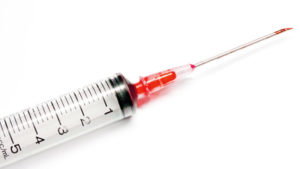Blood tests
Blood tests for women
Below is an outline scope of blood testing which will aid the understanding of potential fertility problems.
- Approximately 7 days after ovulation (on day 21 if you have a 28 day cycle) we will measure your progesterone level. This should be high if ovulation has occurred (the first day of the menstrual period is Day 1)
- On day 8, if you have an irregular cycle, a number of hormones are measured. This helps us identify the cause of your irregularity.
- Anti-Mullerian Hormone (AMH) levels will be measured. This helps us check how responsive your ovaries are.
- Antibodies to rubella (German measles).
This is to make sure you are immune (you would probably have had a jab for this when you were younger) as it can harm a pregnancy if you catch rubella whilst pregnant. - Antibodies to chlamydia. Chlamydia is a sexually transmitted disease. If you have antibodies in your blood you either currently have, or have had, this infection at some stage in your life. It is important that we check for this as it can cause fallopian tube damage and can be a cause of male and female infertility.
Blood tests for men
There are separate blood tests for men, and more information is available on the Semen analysis page.
